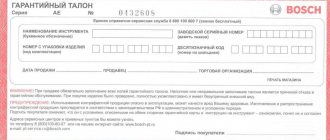Pay taxes in a few clicks!
Pay taxes, fees and submit reports without leaving your home!
The service will remind you of all reports. Try for free
Employees are given bonuses as incentives for quality work and length of service. It can be paid annually, monthly or quarterly. The employer decides how often to stimulate employees. Taxes are collected on employee salaries, and many people wonder if bonuses are taxable.
A little theory: accounting concepts and types of bonuses
The bonus is an optional payment. This is a monetary reward for an employee for special merits. There are several types of incentives:
- by form of payment: in monetary terms or in the form of a gift (in kind);
- by frequency of payments: one-time or for a certain period;
- by purpose: production and non-production;
- according to the indicator: for the anniversary, for length of service.
According to Article 191 of the Labor Code of the Russian Federation, bonuses can be awarded for:
- high qualifications;
- high labor achievements;
- active in the development of the company.
What are the grounds for bonuses?
Each organization independently sets for itself the grounds on which it awards bonuses to employees. There are the following reasons:
- fulfillment of planned indicators;
- implementation of particularly complex tasks and assignments;
- intense work.
The grounds for additional financial incentives are listed:
- in the bonus regulations;
- collective agreement;
- employment contracts of employees.
The employer has the right in internal documents on additional incentives not to provide specific grounds for bonuses, but to record only the reasons for the quarterly accrual of additional amounts and to establish a list of reasons for canceling the incentive - cases when material incentives are removed and the employee is deprived of payment.
The scheme for paying quarterly bonuses is as follows:
Conditions for awarding bonuses
There are several official conditions for bonuses for employees:
- Federal Law No. 208. If one of the founders of the organization decides to award a bonus to employees, he makes this decision together with his colleagues.
- Article 129 of the Labor Code of the Russian Federation. The procedure for calculating monetary remuneration must be specified in the employment contract.
- Article 135 of the Labor Code of the Russian Federation. All issues of bonuses for employees must be agreed with the trade union, if there is one at the enterprise
Add bonuses for free and automatically calculate taxes through Kontur.AccountingTry for free
This might also be useful:
- Application for voluntary resignation
- Sick leave for pregnancy and childbirth
- Compensation for staff reduction
- Calculation of compensation for delayed wages
- Calculation of the average number of employees
- Effective pre-employment tests
Is the information useful? Tell your friends and colleagues
Dear readers! The materials on the TBis.ru website are devoted to typical ways to resolve tax and legal issues, but each case is unique.
If you want to find out how to solve your specific issue, please contact the online consultant form. It's fast and free!
Taxation procedure for bonuses
Employers ask whether the bonus is subject to personal income tax. Their doubts are justified: firstly, such remuneration is always the employee’s income, and the income is taxed; secondly, the bonus is not remuneration.
The answer to this question lies in the first point: the premium is income. According to Article 209 of the Tax Code of the Russian Federation, personal income tax and insurance payments are paid from it. The accrual of income tax on remuneration is standard - 13%.
The tax on the premium is calculated on the day it is actually received. This date is determined differently depending on whether the bonus is for performance or for other reasons, such as the employee's 50th birthday:
- bonus for production results - the last day of the month in which it is accrued (except quarterly and annual);
- non-production bonus - the day the employee is paid.
Personal income tax is always withheld when paying remuneration to an employee. The tax must be transferred to the budget no later than the next day.
In income documents
Article 136 of the Labor Code obliges the employer to provide, among other things, the amount of bonuses paid to the employee in the form of the pay slip developed by him.
In addition, whether it is taxed or not, the bonus is reflected in the income certificate on form 2-NDFL (see table). For which month they were accrued - that is what they indicate.
| Award type | Code in 2-NDFL |
| Labor | 2000 |
| Unearned | 4800 – “Other income” |
Also see “How to reflect the payment of bonuses in the calculation of 6-NDFL”.
Why is it profitable to pay taxes on employee bonuses?
Articles 255 and 272 of the Tax Code of the Russian Federation state that all monetary remuneration accrued to employees is included in labor costs. This reduces the amount of income tax (for organizations using the OSNO) or the single tax (for organizations using the simplified tax system “income minus expenses”). To avoid misunderstandings with the tax office, keep documents confirming your right to a tax reduction. Everything related to the premium and its inclusion in costs must be regulated by regulations.
The premium can be taken into account in expenses if the following conditions are met:
- In your employment contract or local regulations, specify the conditions for calculating remuneration. It is prohibited to deduct incentive amounts from income tax if this condition is not met (Article 270 of the Tax Code of the Russian Federation).
- The bonus is paid for length of service or for labor performance that can be confirmed by documents. For example, an employee of the sales department can be awarded a bonus based on a memo from the immediate supervisor with data on the implementation of the plan.
- The manager must issue an order to reward employees using Form T-11 for one employee, and Form T-11a for several.
Note! Only bonuses for production performance can be taken into account in tax expenses. Anniversary, holiday and other non-production bonuses cannot be taken into account. Also, bonuses paid from net income, special purpose funds or earmarked proceeds cannot be taken into account.
Can an employer reward himself?
The awarding of bonuses to senior management is of a special nature. Rewarding top executives can only be done by business owners, since it is they who ultimately own the net profit. In all other situations, the manager does not have the right to sign an order on his own bonus. Otherwise, such an incident will become a reason for tax proceedings with the almost inevitable recognition of such a monetary transaction as an unjustified tax benefit.
Insurance premiums from premium
According to Federal Law No. 212, payments to employees working on the basis of an employment contract are subject to insurance contributions. Deductions for insurance premiums from remuneration proceed in the same manner as with wages. Contributions must be paid to the Federal Tax Service, Social Insurance Fund and Compulsory Medical Insurance Fund.
Important! Insurance premiums are accrued in the same month in which the monetary reward was accrued. For example, an annual premium for 2021 accrued in January 2021 is included in the base for calculating contributions for January 2021.
According to the Ministry of Finance, bonuses for holidays, anniversaries and one-time payments are subject to contributions in the standard manner. However, companies that did not agree with this position and went to court were able to win against the tax office and defend their right not to charge contributions for such payments (Definitions of the Armed Forces of the Russian Federation dated December 27, 2017 N 310-KG17-19622, dated April 6, 2017 N 306 -KG17-2349, dated 10/13/2016 N 306-KG16-13002). It turns out that it is possible not to pay contributions on such premiums, but you should be prepared for the fact that the tax office will charge them additionally and the dispute will have to be resolved in court.
Results
Is the salary bonus taxable in 2020-21? Yes, it is taxable! And as part of the remuneration, it is subject not only to personal income tax, but also to all insurance contributions. The source from which the premium is calculated does not matter in this case. If the bonus is unearned, payment of contributions can be avoided.
Sources:
- Tax Code of the Russian Federation
- Labor Code of the Russian Federation
- Civil Code of the Russian Federation
- Federal Law of July 24, 1998 No. 125-FZ “On compulsory social insurance against industrial accidents and occupational diseases”
You can find more complete information on the topic in ConsultantPlus. Free trial access to the system for 2 days.
What happens if you don’t pay taxes on your premium?
In accordance with the Criminal and Tax Codes, penalties and fines are provided for tax evasion, penalties are possible from responsible persons (accountant, director of the organization) and blocking of the company's current account. According to paragraph 3 of Art. 110 of the Tax Code of the Russian Federation, in case of accidental violation of tax legislation, a fine of 20% of the missing amount is provided. And for intentional violation of the law - 40% of the missing amount.
So, all employee bonuses, regardless of whether they are paid permanently or one-time, are subject to income tax and insurance payments. Exceptions may include rewards for special achievements in science, as well as incentives, the amount of which per year does not exceed 4,000 rubles.
Pay taxes on premiums automatically in the cloud service Kontur.Accounting. The service will help you correctly reflect the premium and pay taxes on it. Use the support of our experts and use the service for free for the first 14 days.
Try for free
Responsibility for violation of deadlines
The new legislation significantly increases the degree of responsibility of employers for failure to pay wages on time. In particular, administrative fines for individual entrepreneurs, organizations and heads of organizations have increased. The amount of compensation for delayed wages has also doubled.
Due to the fact that bonuses are part of the salary, increased responsibility also applies to them. Moreover, administrative fines can be applied for each employee who receives a bonus late.
How to calculate
There are several ways to calculate a bonus: based on salary, for actual time worked, based on points, and others. Such methods are used in budgetary institutions, and in commercial and non-profit organizations. The calculation procedure, as well as the indicators for bonuses, are prescribed in the salary regulations and the collective agreement of the organization. Main calculation methods:
- in a fixed amount - the employer sets the absolute indicators of periodic bonuses;
- as a percentage - the manager determines what percentage of the salary the bonus is, and monetary incentives are calculated as a share of the salary, tariff or average salary;
- for actual work time - the actual time worked by each employee is calculated, and the amount of payments is determined based on this indicator;
- share of revenue (plan) is a fixed percentage by which the amount of transactions carried out or contracts concluded for the quarter is multiplied. This is the employee's bonus;
- points. The point system provides for the accumulation of points over the period of work. Each point has a monetary value. The bonus payment is calculated as the product of the total number of points for the period and the cost of one point.
These are not all calculation methods. The organization has the right to provide one of the above or develop a specific mechanism for quarterly bonuses. The main requirement is to consolidate order in local labor standards.
Example of calculation from salary
A current example of calculating an employee’s salary: Viktorova V.V. works as a chief accountant. Her salary is 15,000 rubles. She was given a bonus for the third quarter of 2021 - 100% of her salary for intensive work. In this case, the formula for calculating the quarterly bonus is as follows:
The payment will be: 15,000 × 100% = 15,000 rubles.
Here is a calculation option if the incentive order specifies shares. Viktorova V.V. receive a quarterly bonus in the amount of 1/2 of the salary:
15,000 × 1/2 = 7,500 rubles.
Example of calculation for time worked
Here is an example of calculating bonuses for actual time worked: Aleksandrova A.A. works at the NGO “Gosuchetnik.ru” as an accountant. The standard working time for the third quarter of 2021 is 66 working days. The employee missed three working days during this period and took leave without pay. Based on the results of her work in the quarter, she was given a financial incentive: the amount of her official salary, taking into account the actual time worked. Salary for the specified period is 35,000 rubles.
The procedure is as follows: the specific amount of the bonus is determined by a fixed percentage, usually of the amount of time actually worked. Incentive = 35,000 / 66 days × 63 days (66 days - 3 days) = 33,409.09 rubles.
Find out for free in ConsultantPlus how to take bonuses into account when calculating average earnings.
to read.










